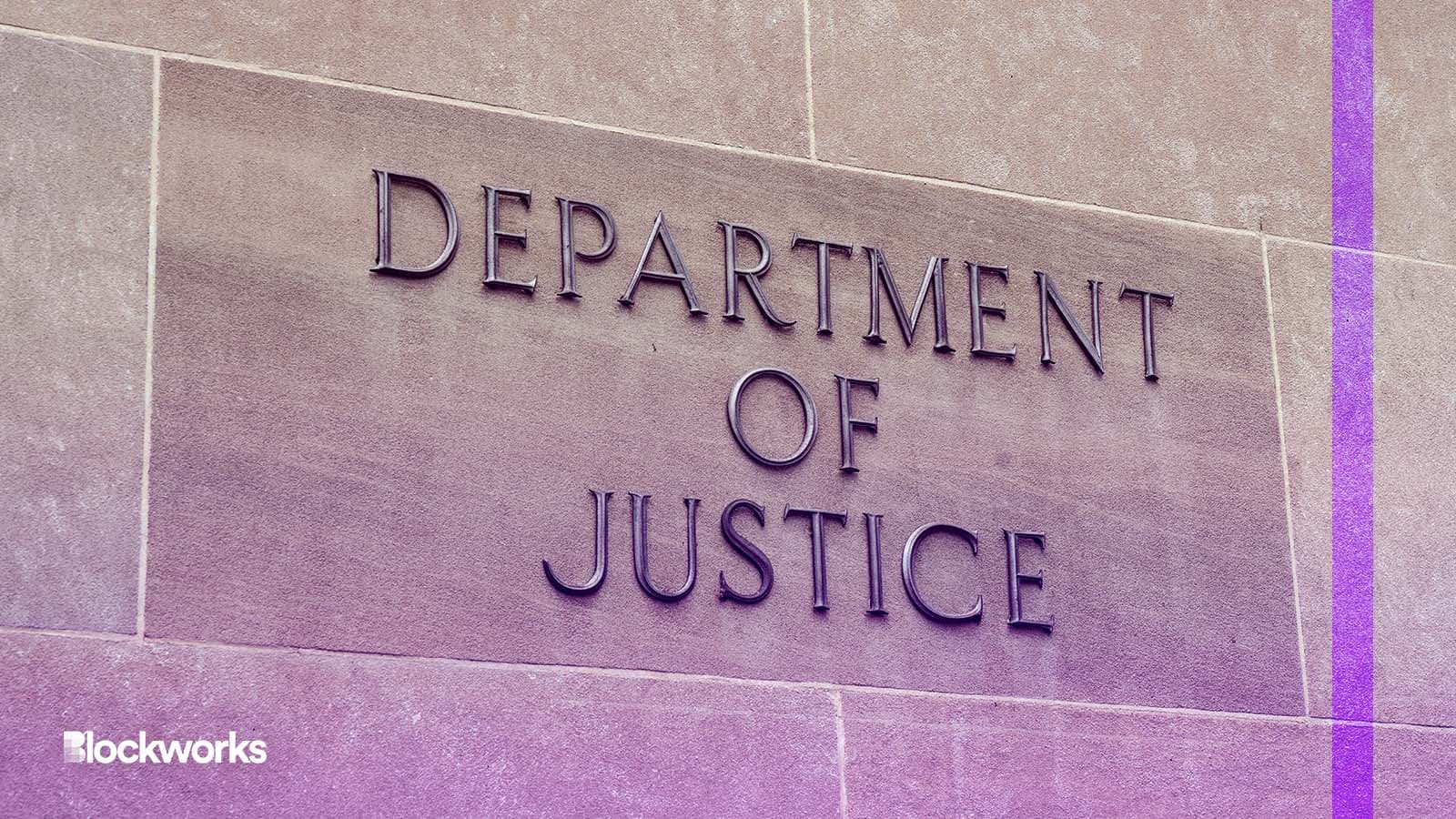DOJ Busts Crypto Exchange No One Has Heard Of
The charges highlight the agency’s ability to act internationally when it comes to cryptocurrency and prohibiting money laundering, Deputy Attorney General Lisa Monaco said

Paul Brady Photography/Shutterstock.com modified by Blockworks
The US Department of Justice has charged the founder of a Hong Kong-based crypto exchange for allegedly processing more than $700 million of illicit funds.
In documents unsealed Wednesday, the DOJ said they charged Anatoly Legkodymov, a Russian national and senior executive of Bitzlato cryptocurrency exchange. Bitzlato is alleged to have “sold itself to criminals as a no-questions-asked cryptocurrency exchange, and reaped hundreds of millions of dollars’ worth of deposits as a result,” US Attorney Breon Peace said in a statement.
Bitzlato worked in conjunction with the previously disrupted Hydra network that the DOJ and German authorities took down in 2022, the agency added. Hydra was “an anonymous, illicit online marketplace for narcotics, stolen financial information, fraudulent identification documents, and money laundering services that was the largest and longest running darknet market in the world,” the DOJ said.
“The Bitzlato takedown is the coup fatal in destroying the joint network that operated with impunity across the darkweb to facilitate money laundering,” Michael Fasanello, chief compliance officer of AnChain.AI said, in a tweet.
The charges highlight the agency’s ability to act internationally when it comes to cryptocurrency and prohibiting money laundering, Deputy Attorney General Lisa Monaco said in a press conference Wednesday.
“Institutions that trade in cryptocurrency are not above the law and their owners are not beyond our reach,” Peace added.
The crypto industry reacted with surprise, with many industry leaders taking to Twitter to say they had never heard of the Chinese exchange managed from Moscow.
The exchange is not listed among markets tracked by CoinGecko or CoinMarketCap, and its known on-chain history is extremely limited.
Meme tokens were already launched on Uniswap within minutes of the start of the DOJ press conference.
The DOJ did not elaborate on how many customers the exchange allegedly interacted with or what the “illicit activities” laundered funds were used for are. When asked if the exchange had any role in assisting Russian entities with evading sanctions, Monaco said the investigation is ongoing.
“What we do know is that Russia is an ecosystem that is permissive for cyber criminals and for the ecosystem that allows them to finance those crimes,” Monaco added. “Our goal is to ensure that Russia can use cryptocurrency or other means to circumvent our sanctions.”
According to a Chainalysis blog post, “[Bitzlato] has facilitated approximately $1 billion worth of crypto money laundering since 2019,” and is linked to Project Terricon, a Russian operation funneling funds to militia groups in the Donbas region of Ukraine.
This story was updated at 2:45 p.m. ET with additional detail, and at 5:00 p.m. ET to correct a title.
Get the news in your inbox. Explore Blockworks newsletters:
- The Breakdown: Decoding crypto and the markets. Daily.
- 0xResearch: Alpha in your inbox. Think like an analyst.






